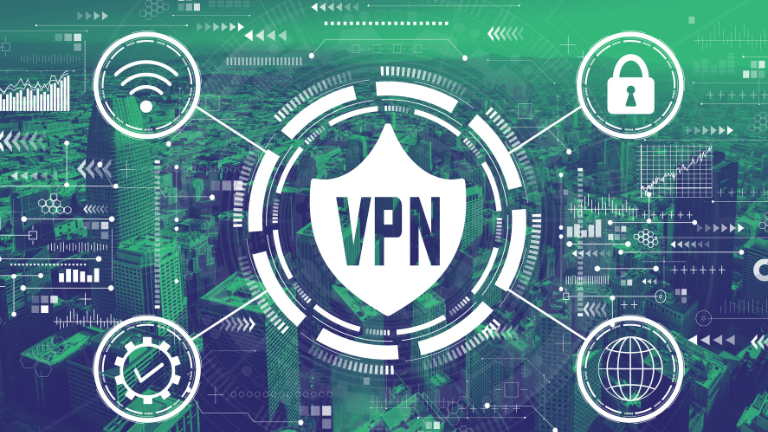In today’s digital world, it’s more important than ever to keep your data and online activity safe and secure. From hackers to cybercrime, there are a lot of threats out there that can put you and your information at risk. One way to protect yourself is by using a VPN, or virtual private network. A VPN encrypts your internet traffic and routes it through a secure server, making it difficult for anyone to intercept or track your data. In this article, we’ll explore three reasons why you need a secure VPN.
What is VPN and why is it important?
A VPN, or Virtual Private Network, is a secure tunnel between two or more devices. A VPN allows you to browse the internet anonymously and securely, making it harder for third parties to track your online activity.
VPNs are especially important for businesses because they provide a way to securely connect remote workers with the company network. VPNs are also useful for accessing region-locked content and bypassing censorship.
There are many different benefits of using the best undetectable VPN, but the most important reason is security. A VPN encrypts your internet traffic, making it difficult for hackers to steal your personal information or eavesdrop on your communications.
How does a VPN protect you?
When you connect to the internet, your computer or mobile device is assigned an IP address. This IP address can be used to track your online activity and current location. Surfshark VPN encrypts your internet traffic and routes it through a remote server, hiding your real IP address and making it difficult for anyone to track your online activity.
In addition to encrypting your traffic, a Surfshark promo code VPN also provides security by hiding your real IP address. This makes it more difficult for hackers and cybercriminals to target you with attacks, as they will not be able to see your true IP address. A VPN can also help to protect your privacy by hiding your online activity from your ISP (Internet Service Provider).
Does a VPN protect your identity?
A VPN is a secure tunnel between your device and the internet. Your data is encrypted and unreadable as it travels through this tunnel, making it much more difficult for hackers or government agencies to track your online activity.
In addition to protecting your data, a VPN also hides your IP address. This makes it much harder for websites to track your location and identity. When you connect to a VPN server, you will be assigned a new IP address from that server’s location. This makes it appear as if you are accessing the internet from that server’s location, rather than your actual location.
A VPN is an important tool for anyone who wants to protect their online privacy and security. It is especially important for those who frequently use public Wi-Fi networks, as these are often unsecured and easy targets for hackers. A VPN can also be helpful if you want to access geo-blocked content, such as being able to view US Netflix while you are located in another country.
Read More: 100% FREE VPN for PC
Is using a VPN worth it?
A Virtual Private Network, or VPN, can be a great investment for many reasons. Here are some reasons why you should consider using a VPN:
- A VPN can keep your data safe and secure.
When you connect to the internet, your data is vulnerable to attacks from hackers and cybercriminals. But when you use a VPN, your data is encrypted and sent through a secure tunnel, making it much more difficult for anyone to steal or intercept it.
- A VPN can help you access blocked websites and content.
If you live in a country where certain websites are blocked (like China), or if your workplace restricts internet access, a VPN can help you get around those restrictions. By connecting to a server in another country, you can bypass government censorship and access the internet freely.
- A VPN can protect your privacy.
When you browse the web without a VPN, your ISP (internet service provider) can see everything you do online. They can track which websites you visit, what kind of content you view, and more. But when you use a VPN, your ISP can only see that you’re connected to a VPN server—not what you’re doing online. That means they can’t sell your data to advertisers or collect information about your online activity
How to choose the best VPN for your needs
When it comes to choosing a VPN, there are a few things you need to take into consideration. What is your budget? What are your needs? What is your level of technical expertise?
Here are a few tips to help you choose the best VPN for your needs:
- Determine Your Budget
The first thing you need to do is determine how much you’re willing to spend on a VPN. There are a variety of options out there, so you’ll need to decide which features are most important to you and how much you’re willing to pay for them.
- Consider Your Needs
Next, you’ll need to think about what your specific needs are. Are you looking for security? Anonymity? A way to bypass geo-restrictions? Make sure the VPN you choose offers the features that are most important to you.
- Evaluate Your Technical Expertise
Not all VPNs are created equal when it comes to ease of use. If you’re not particularly tech-savvy, you’ll want to make sure the VPN you choose is easy to set up and use. On the other hand, if you’re more comfortable with technology, you may prefer a more complex VPN with more features.
- Read Reviews from Trusted Sources
Finally, once you’ve narrowed down your choices, it’s important to read reviews from trusted sources before making your decision. This will help ensure that you.
Conclusion
In conclusion, there are good reasons to use a VPN. Not only can they keep your data safe and private, but they can also help you stay anonymous online. If you’re concerned about your online security, then a VPN is a must-have tool.

